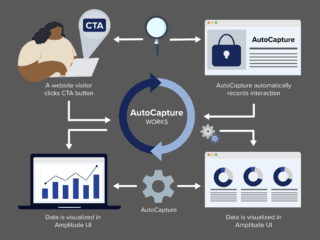Google announced on April 23 that it will again delay third-party cookie deprecation (3PCD) in response to ongoing regulator and industry feedback. Specifically, Google now does not expect 3PCD to push forward until early 2025.
According to media reports, the UK’s Information Commissioner’s Office (ICO) will soon publish a report detailing concerns that Google’s forthcoming Privacy Sandbox solutions to replace Chrome’s third-party cookies must take additional steps to protect user privacy. This development follows feedback from the Competition and Markets Authority (CMA), which had previously found that Privacy Sandbox proposals potentially violate European anti-competitive laws and ordered Google to pause 3PC deprecation until the CMA’s competition-related concerns are resolved.
To compound the mounting pressure, industry standards group IAB Tech Lab released an assessment of the Privacy Sandbox in February, which outlined a separate set of criticisms about its ability to support common online advertising use cases. This has caused additional apprehension for marketers about how they will be able to manage and measure media using cookieless methodologies in the future.
What this means for the rest of 2024
- Cookie-reliant technologies and methodologies will get another stay of execution, though Google has noted they intend to proceed with 3PCD as soon as an agreement with the CMA can be reached, ideally early in 2025.
- A little extra Privacy Sandbox development time is a win for publishers, advertisers, and agencies. It allows the industry to continue to evolve and enhance solutions, such as incorporating additional IDs and partner integrations.
- However, Google’s 3PCD move has no impact on other privacy-related forces driving data deprecation, including the rising number of data privacy laws across the globe, regulator enforcement actions, and consumer class-action lawsuits.
- Advertisers and publishers should not delay evaluating how they are positioned to execute through multiple data deprecation drivers, including user consent, redacted data signals, activation platform fragmentation, and eventually, third-party cookies.
What we think
Privacy-related transformation challenges and opportunities exist right now, regardless of what happens with cookie deprecation or when. The availability (or not) of third-party cookies should not determine the level of aggressiveness of your organization to gain a competitive advantage in your market and deliver exceptional marketing outcomes while staying ahead of a rapidly shifting privacy landscape.
If your organization is fully prepared for 2024, you likely prioritized a transformation plan in 2021. But if you are among the 95%+ of organizations elsewhere on the transformation spectrum, use Google’s 3PCD delay as an opportunity to get serious about determining your priorities. Brands in highly regulated industries like healthcare and financial services don’t have the luxury of waiting any longer to plan how to respond to data deprecation impacts from privacy changes. More than ever, marketing, legal, and technology teams must align on the path forward.
Brands planning to win based on a wealth of first-party data are in a different situation. Failure to evolve data collection, measurement, and activation solutions will cost them a competitive advantage, but the execution must also comply with privacy guidelines. 3PCD is one of many converging data deprecation concerns that will become a reality now, even if the timeline remains murky.
The silver lining is that Google’s delay allows brands to focus on adapting to more urgent issues created by privacy-related forces, which will build a foundation for transformation success as 3PCD follows. We will need to simultaneously plan and solve for Google’s timeline while also considering the broader balance of privacy and utilization of data and platforms that drive activation.
Author

Nick is Vice President of Analytics at Cardinal Path, where he is responsible for the commercialization and delivery of Google Analytics and related services. When not working with clients, Nick authors original research, articles and blog posts, and speaks at conferences around the world. He is an alumnus of the 2023 college football national champion University of Michigan.
View all posts


















